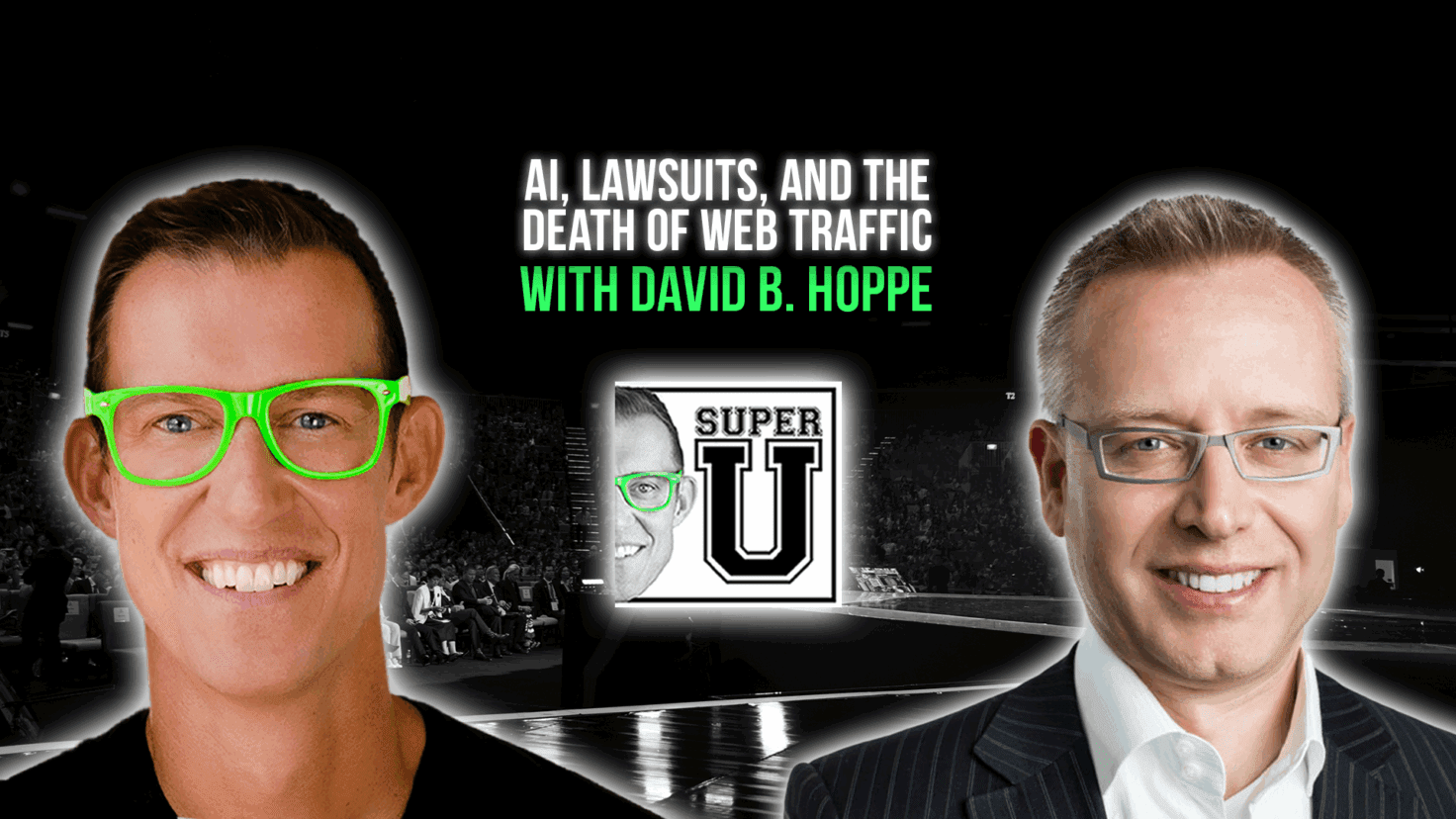Super U Podcast | 7 Super Tips with Brian Chesky
Brian Chesky is an American businessman and industrial designer. He is the co-founder and CEO of the peer-to-peer lodging service Airbnb. Chesky was named one of Time‘s “100 Most Influential People of 2015”.
5x #1 Bestselling Author and Motivational Speaker Erik Qualman has performed in over 55 countries and reached over 50 million people this past decade. He was voted the 2nd Most Likable Author in the World behind Harry Potter’s J.K. Rowling.
Need a sneak peek? Below are the main takeaways from the episode.
Super U Podcast | 7 Super Tips with Brian Chesky
[5:29] Tip #1
“I think we just didn’t quit. And I think a lot of people who tried to do what we did or try to do other things, they quit, they stopped short. And a lot of people ask, Well, why didn’t you quit? And the reason we didn’t quit is if you start a company, very simply, you have to know something no one else knows about your business. Otherwise, why are you doing it? And why doesn’t already exist? So the big question is, what do you know that no one else knows about your business, you need to have a unique insight. And we had a very simple, unique insight. It was totally by happenstance. In other words, we randomly rented our home one weekend. And so our unique insight was, it’s actually not weird for strangers to they’re strangers, and you can make a bunch of money and the people who travel there can save money have an amazing experience. If people could just experience what we experienced that one weekend, this would be an idea that would spread around the world. And again, maybe 1000s of people one day would use Airbnb. And that was our unique insight. And so that was kind of our North Star. And so we just kept thinking that first week, and that’s why we kept going.”
[6:47] Tip #2
“the thing I found is you have to be shameless, that there are very few people in the world, they’ll say, I don’t want to help you, I don’t want to talk to you. And I think that’s a great honor to be able to pass something along. Because I think everyone here that was successful was successful because somebody helped them. I think we all feel something internal that we want to be able to give back and help others. And so I was just maybe more shameless than others because I think a lot of people just feel like, I just don’t feel like I should bother that person. And there was a, there’s an old saying, are the average of like the five people you surround yourself with. And so the humans were like, really adaptive people. If you put yourself in deeply uncomfortable positions, or you put yourself in positions where you can be around extraordinary people, you tend to adapt, you don’t have to be extraordinary, you just kind of adapt to your environment. So I think adaptation, the environment is nearly just been my story. I was just put in a crazy experience. That got crazy. And it just, you had to just hold on and not fight it. And if you just hold on, you don’t fight it and you adapt, you’ll be okay.”
[8:06] Tip #3
“There’s probably a lot of people audience thinking about starting something. And there’s not a lot of books around it. But one of the biggest lessons that I’ve learned is, the number one trait that I’ve seen that makes people succeed is probably perseverance. I think there’s this notion that I don’t have a good idea. I think the number one reason people say doesn’t start a business, is they don’t have a good idea. It’s not the right time, I generally find that every year, the time gets worse than a time. Like, it’s always like that the never, that never gets better to start a company. The idea often changes, you know, our idea, we had an idea, we were gonna rent three air mattresses in a living room. So that wasn’t that big of an idea. And I’m sure many people have bigger ideas than that.”
[8:51] Tip #4
“A lot of products fail because they start as business plans. And the problem is the only thing that really matters, the people want it and your customers do not care that you’re successful. In fact, sometimes they do not want you to be too successful, because they want to know that they got the value. And so I think the key thing is, are you making something that people want? And if you’re starting it, because it’s a good revenue generator, like when your customer doesn’t care about that, and so might be a great business, but not if no one uses it.”
[9:34] Tip #5
“Our ideas changed many times and it’s really not about one idea. It’s about 1000s ideas and one thing you’ve done and I think any entrepreneur has done is you talked about like just having like a Northstar, always seeing that always going and I find that when perseverance one thing that I think perseverance comes from is you. It’s like you see a destination and that destination is so clear that any noise around you any setback around you. It’s like a detour Do you know where you’re trying to end up? Right? If you know where you’re trying to end up, I find that you can usually get to your destination might take you longer than you ever thought. But you’ll probably get to a destination. And if you don’t have a clear like the end goal, Northstar, it’s very easy to get kind of detour and be kind of confused along the way.”
[11:34] Tip #6
“I have a culture internally, which is to say, always be the first to adopt a new platform, never be the last, the people that are last, adopt new platforms that kind of there’s no room on the platform for you. And so we were pretty late to launch an iPad app. We didn’t do it for a couple of years, the team had all these reasons why we had to be focused. And eventually, we got the iPad app out. But then we also develop the watch app and the TV app for Apple TV. And we were one of the launch partners and a team of attorneys like why should we spend all of our development resources on these two applications that so few people are using? We have 10s of millions of people over here using a website or using a phone? Why are we developing our resources there? And if your focus on today, you’re going to focus on your core, the good news is that even like the future belongs to nobody, The future belongs to whoever wants to go there first. And so I said we have to have in our culture, to be the first to a new platform. And no matter how disruptive or disrupted you are, as a company, there’s always the next platform, you can always choose to be one of the first to join that platform.”
[12:54] Tip #7
“I think you should try to find people you admire that are better than you that challenge you. The mentality is if they’re better than you, then you will rise to the occasion become better because you’re around them. And the other thing is yet that people that you deeply trust in like, you’re going to be around these people for 12 hours a day, 14 hours a day, 16 hours a day if you’re kind of annoyed by them after four hours, you can be a little annoyed about them. After month 724 Seven, you’re gonna really like not be able to stand them. So you need people that you like that you trust and that you admire, and ideally, you have a long history with them. I had a long history with one of the two. But I think Nate who I didn’t have a long history of proves you don’t have to have been friends with him for seven years for it to work. And I generally find complementary skills rather than overlapping skills works.”
Connect with Brian Chesky:
Twitter: @bchesky
Instagram: @bchesky
Click here to subscribe and listen to the full episode.

To ensure you don’t miss future episodes, subscribe to our podcast by clicking here >> Super U Podcast. We hope these tips help unlock and unleash your inner superpower!
The Super U Podcast is hosted by #1 bestselling author and Motivational Speaker Erik Qualman.





